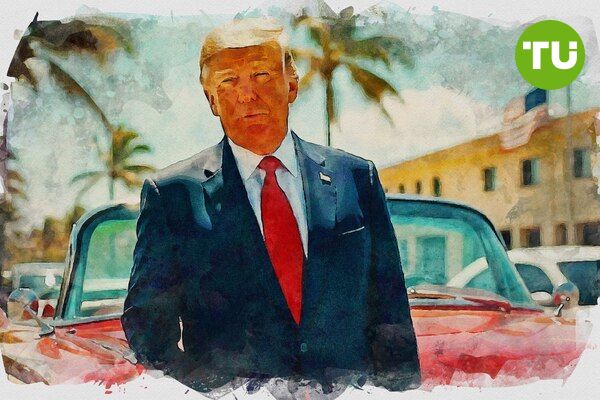Trump announces 25% tariffs on auto imports to the U.S.
 Trump imposes 25% tariff on auto imports, escalating trade war
Trump imposes 25% tariff on auto imports, escalating trade war
President Donald Trump has announced a sweeping 25% tariff on imported automobiles and key vehicle components, escalating trade tensions and signaling a broader push for protectionist economic policies.
The White House confirmed that the tariffs will apply to fully assembled vehicles and essential parts such as engines, transmissions, and electrical components. Additional restrictions on auto parts will follow on May 3. Trump framed the tariffs as a decisive move to protect American jobs and economic interests, reports Bloomberg.
"What we’re going to be doing is a 25% tariff on all cars that are not made in the United States," Trump stated. "We’re going to charge countries for doing business in our country and taking our jobs."
The tariffs will be layered on top of existing trade levies, with the administration projecting $100 billion in annual revenue from the measure. U.S. automakers with foreign production links, such as General Motors, Ford, and Stellantis, saw their stock prices decline following the announcement.
Global Reactions and Potential Retaliation
The move has sparked sharp criticism from international leaders. European Commission President Ursula von der Leyen called the decision "regrettable," while Canadian Prime Minister Mark Carney condemned it as a "direct attack" on the North American auto industry, hinting at potential countermeasures.
Ontario Premier Doug Ford suggested Canada would retaliate by targeting American-made cars. Japan also signaled possible trade actions, with Prime Minister Shigeru Ishiba stating, "We must consider appropriate responses and naturally, all options are on the table."
Industry groups, including Autos Drive America, warned that the tariffs could backfire by increasing vehicle prices, reducing consumer choices, and ultimately costing U.S. jobs.
The auto tariffs are part of a broader trade strategy, with additional tariffs on lumber, semiconductors, and pharmaceuticals expected soon. Trump has also promised "reciprocal tariffs" on April 2, aimed at countering trade barriers imposed on U.S. exports.
Additionally, Tesla (TSLA) stock jumped nearly 12%, leading gains among the “Magnificent Seven” as investors reacted positively to reports that President Trump may delay new auto sector tariffs.













































































































































